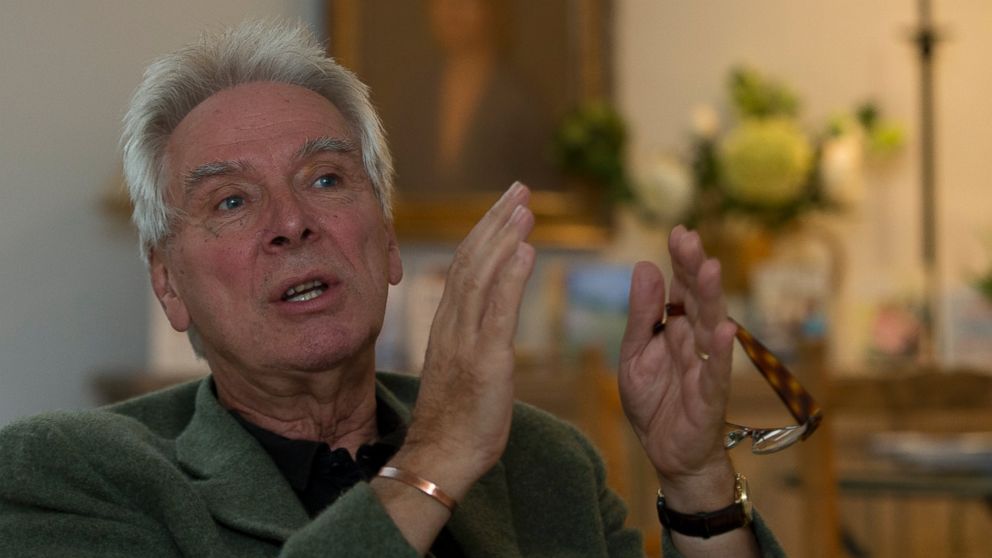Rock Soundman Glyn Johns Talks Beatles
Glyn Johns is a walking rebuttal to the maxim that if you remember the 1960s, you weren't there.
He was there — overseeing the Rolling Stones' first recording session, arranging the Beatles' rooftop concert, reeling from the first blast of Led Zeppelin —  and he remembers everything.
and he remembers everything.
Johns, a recording engineer and producer, began his career at the start of the 60s, when studio technicians still wore white lab coats. He went on to work with the Stones, the Small Faces, the Steve Miller Band, The Kinks, The Who, the Eagles and many more, helping to define a certain classic-rock sound.
"I'm a bit of a purist," said Johns, whose memoir, "Sound Man," is being published Thursday in the U.S. by Blue Rider Press. It's out in Britain next month.
Johns recalled how after the Beatles released the "Sgt. Pepper" album in 1967, Mick Jagger took him into a cafe near London's Olympic Studios.
"He said 'You've got to come up with some new sounds.' Because 'Sgt. Pepper' had reinvented the wheel," Johns explained. "And I said 'Oh really? Have I? I thought I was here to record you playing.' And that's really always been my attitude.""
Bands liked what he did, and the briskly written "Sound Man" recounts an exhausting work rate. Through the 1960s and into the 70s, Johns spent long nights in the studio with the Stones, went on the road to record them on tour, and became increasingly in demand in the United States while working with the cream of British rock.
How did he manage? Unusually for the time and the music industry, Johns never took drugs.
"You can't do what I do and be under the influence of anything," said Johns, clear-eyed and energetic at 72. "Coffee would be about it."
He said some acts stopped working with him because he wouldn't allow them to get high during recording sessions.
"I wouldn't let The Eagles have any drugs in the studio and in the end that was part of my reason for being fired" after producing their first two albums, he said.
Still, he noted that their next album, "Hotel California," was a smash hit — and "Sound Man" is full of such even-handed assessments.
Johns gave the Stones their first recording session, in 1963, only to see the band go off with producer Andrew Loog Oldham.
"I wasn't best pleased," Johns said during an interview at his airy London mews house. "But that's life."
He went on to work with the band as an engineer for well over a decade.
He recorded the Beatles in 1969 for the then-disintegrating band's final album, "Let It Be," and was the one who suggested they play a gig on the roof of Apple Corps' London headquarters.
"It was a difficult time for them," Johns said. "But equally I also witnessed them having a really good time and being hysterically funny and just ordinary blokes."
Johns describes several lightning-bolt musical moments, like hearing Led Zeppelin for the first time after Jimmy Page, an old friend, asked Johns to record his new band.
"My jaw was on the floor for the next week," he said.
When he tried to share his enthusiasm with George Harrison and Mick Jagger, however, he was disappointed.
"They completely didn't get it," Johns said.
Johns admits to some blind spots of his own. Initially he didn't understand the appeal of Eric Clapton.
"When I first met him I didn't like him at all because he was a heroin addict, and that doesn't show anybody in their best light," Johns said.



